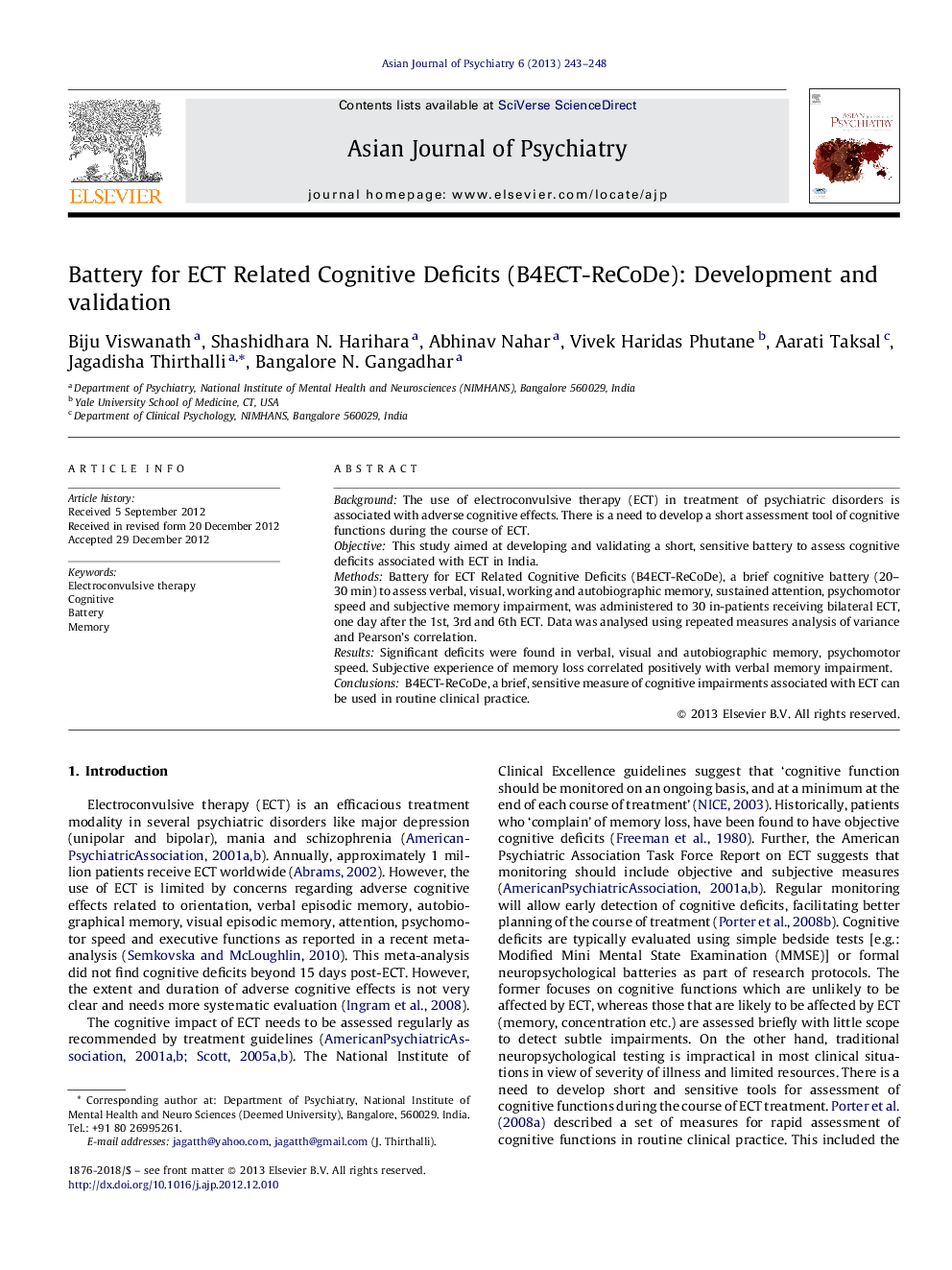| Article ID | Journal | Published Year | Pages | File Type |
|---|---|---|---|---|
| 316925 | Asian Journal of Psychiatry | 2013 | 6 Pages |
BackgroundThe use of electroconvulsive therapy (ECT) in treatment of psychiatric disorders is associated with adverse cognitive effects. There is a need to develop a short assessment tool of cognitive functions during the course of ECT.ObjectiveThis study aimed at developing and validating a short, sensitive battery to assess cognitive deficits associated with ECT in India.MethodsBattery for ECT Related Cognitive Deficits (B4ECT-ReCoDe), a brief cognitive battery (20–30 min) to assess verbal, visual, working and autobiographic memory, sustained attention, psychomotor speed and subjective memory impairment, was administered to 30 in-patients receiving bilateral ECT, one day after the 1st, 3rd and 6th ECT. Data was analysed using repeated measures analysis of variance and Pearson's correlation.ResultsSignificant deficits were found in verbal, visual and autobiographic memory, psychomotor speed. Subjective experience of memory loss correlated positively with verbal memory impairment.ConclusionsB4ECT-ReCoDe, a brief, sensitive measure of cognitive impairments associated with ECT can be used in routine clinical practice.
► We designed the Battery for ECT-Related Cognitive Deficits as a brief tool to assess cognitive deficits during ECT ► It covers aspects of memory (verbal, visual, working, autobiographical), psychomotor speed and sustained attention ► This bed-side tool can be administered in about 20 min and is useful for routine clinical use ► Significant and progressive deficits identified over a course of 6 ECT sessions established the sensitivity of the battery ► Significant direct correlations were observed between subjective experience and objective assessment of cognitive deficits.
